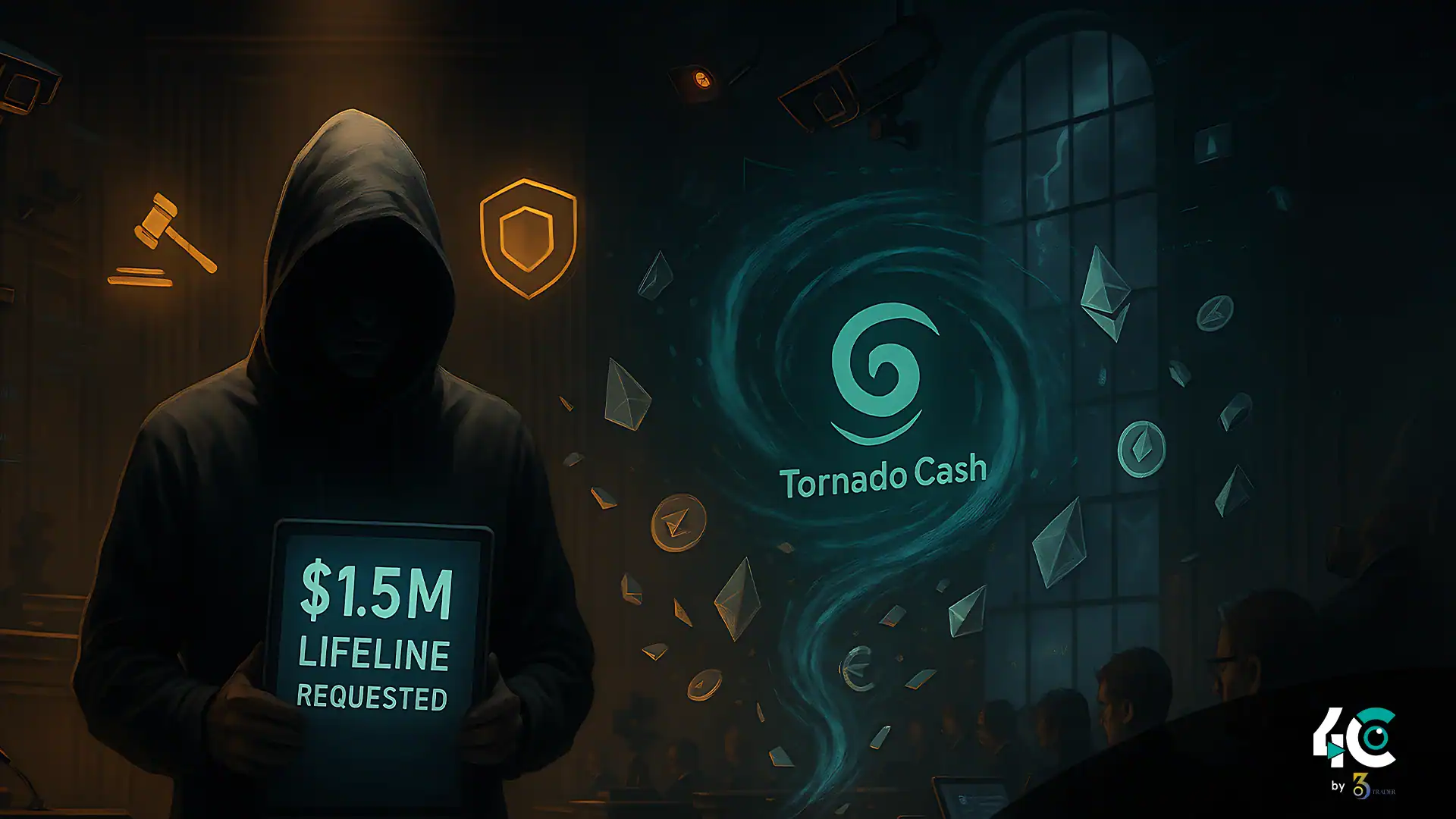Roman Storm, a co-creator of the crypto privacy protocol Tornado Cash, is asking for money from the crypto community. Storm has requested an extra $1.5 million to assist his legal battle as it enters its third week, which is high-profile.
On July 26, Storm shared on X (formerly Twitter) that his legal fees are piling up and that the process has been draining. “It sounds nuts, but I need again ~$1.5 mm,” he wrote, adding that his legal team has been “working around the clock,” “missing sleep and rest to prepare the arguments.”
The community has so far given more than $3.9 million to his legal fund, which includes $750,000 from the Ethereum Foundation. According to the website, 65% of the $5 million in updated fundraising has already been achieved.
The trial, which started on July 14 in the Southern District Court of New York, may redefine how the U.S. government defines privacy-preserving crypto tools. Storm is accused by prosecutors of money laundering conspiracy, violating US sanctions, and running Tornado Cash as an unlicensed business.
This case arose from fears that Tornado Cash, a decentralized crypto mixer, was exploited by criminals, including North Korea’s state-sponsored Lazarus Group. U.S. press freedom misused to harm. In August 2022, Tornado Cash was sanctioned by the Treasury’s Office of Foreign Assets Control (OFAC). But, following a civil lawsuit from its users, those sanctions were lifted in March 2024.
According to Storm’s defense, Tornado Cash is decentralized and autonomous code, not a business belonging to Storm or anyone else. His lawyers reference guidelines from the Financial Crimes Enforcement Network (FinCEN) dated 2019, claiming the developers of programs that anonymize transactional data are not liable for operating as a money transmitter. Publishing code is actually considered ‘speech,’ which is protected under the First Amendment.
Storm co-created Tornado Cash in 2019 with Roman Semenov and Alexey Pertsev, forking the idea from Ethereum’s Vitalik Buterin on private accounts.
Storm is on trial in the U.S., and this has affected his other co-creators too. A Dutch court found Pertsev guilty of orchestrating a money-laundering scheme in May 2024. He is currently appealing the conviction under strict conditions. Semenov, on the other hand, remains on the FBI’s wanted list and has not been caught.
Conclusion
Roman Storm’s ongoing trial is not only a personal legal fight. The case could mark a watershed moment for crypto privacy rights, developer freedoms, and the legal status of decentralized protocols. Many millions have been raised already, but crucially, more are needed. The result of this case could determine the future of open-source technology and privacy.



























